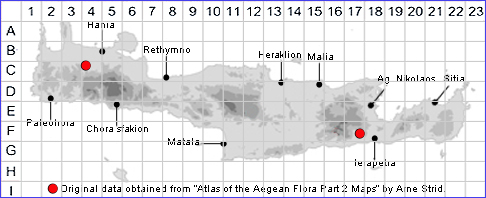SPECIES DESCRIPTION
VICIA HIRSUTA
Family and Genus:- See- LEGUMINOSAE/Sect. ERVUM
Common Name:- Hairy tare
Homotypic Synonyms:- None
Meaning:- Vicia (L) Binder, to bind, a name used by the Roman naturalist and
philosopher Pliny for vetch.
Hirsuta (L) Rough-haired, covered in long hairs.
General description:- Very slender, weak-stemmed annual.
Stems:-
1) 20-50 cm.
Leaves:-
1) Leaflets, 4-8 pairs, 5-20 x 1-3(-5) mm, linear- or ovate-oblong.
2) Stipules, entire, the lower linear-lanceolate, often with 2-4 setaceous, teeth.
Flowers:-
1) Racemes, lax, 1- to 8-flowered, almost equalling the leaves.
2) Peduncles, somewhat shorter than the subtending leaf.
3) Calyx tube, campanulate, not gibbous:
a) teeth, linear-lanceolate, longer than the tube.
4) Corolla, 2-4(-5) mm, dirty white with a purplish tinge.
Fruit:-
1) Legume, 6-11 x 3-5 mm, black, usually pubescent.
2) Seeds, usually 2; hilum 1/3 of the circumference.
Key features:-
1) Corolla, 2-4(-5) mm.
2) Seeds, usually 2.
3) Lower stipules, linear-lanceolate, usually dentate.
4) Legume, usually pubescent.
Habitat:- Coastal habitats, scrubland vegetation and deciduous scrub, meadows,
road verges. 0-1300 m.
Distribution:- Common in N Greece, scattered in Peloponnisos and Ionian Islands.
- Widespread in Europe, Africa and temperate Asia.naturalised elsewhere. Rare on
Crete currently know from only two locations one near Vatolakos in the west and
Bramiana reservoir Ierapetra in the SE.
Flowering time:- Apr-June.
Photos by:- Courtesy Wiki-Commons

